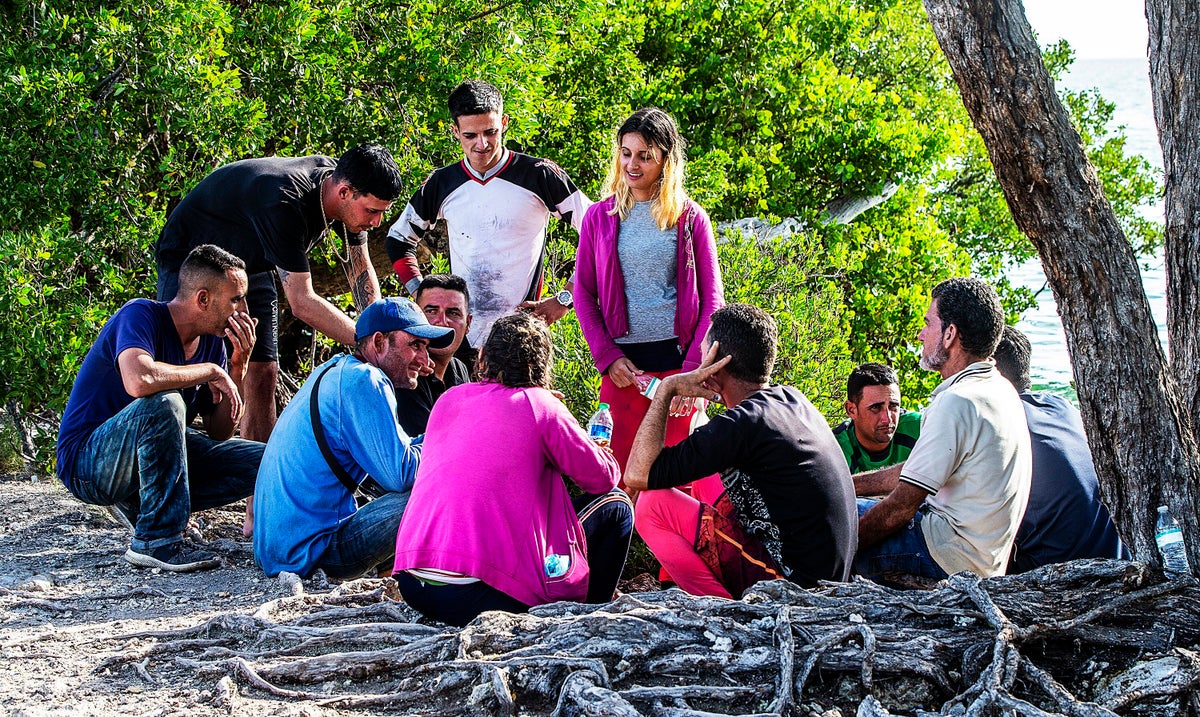
At least 500 migrants have landed in the Florida Keys over the last several days in what the local sheriff's office described on Monday as a “crisis."
Economic turmoil, food shortages and soaring inflation in Cuba and other parts of the Caribbean is spurring the most recent wave of migration. Over the weekend, 300 migrants arrived at the sparsely populated Dry Tortugas National Park, about 70 miles (113 kilometers) west of Key West. The park was closed so that law enforcement and medical personnel could evaluate the group before moving them to Key West, the park tweeted.
Separately, 160 migrants arrived by boats in other parts of the Florida Keys over the New Year's Day weekend, officials said. On Monday, 30 people in two new groups of migrants were found in the Middle Keys.
In a news release, Monroe County Sheriff Rick Ramsay criticized the federal response to the uptick in migrant arrivals, saying they were stretching local resources. U.S. Border Patrol told the sheriff’s office that the federal response to some of the migrant landings may have to wait a day, the news release said.
“Refugee arrivals require a lot of resources from the Sheriff’s Office as we help our federal law enforcement partners ensure the migrants are in good health and safe,” said Ramsay, whose office's jurisdiction encompasses the Florida Keys. “This shows a lack of a working plan by the federal government to deal with a mass migration issue that was foreseeable."
Officials at Dry Tortugas National Park said they expected it be closed for several days because of the space and resources needed to attend to the migrants. The national park is at the southern tip of the continental U.S. — and attracts scuba divers and snorkelers for its coral reefs, nesting sea turtles, tropical fish and shipwrecks.
“Like elsewhere in the Florida Keys, the park has recently seen an increase in people arriving by boat from Cuba and landing on the islands of Dry Tortugas National Park," the National Park Service said in a news release.
In addition to landings at the national park over the weekend, 160 other migrants arrived in the Middle and Upper Keys. At least 88 of the migrants are from Cuba, U.S. Customs and Border Protection said in a tweet.
U.S. Border Patrol and Coast Guard crews patrolling South Florida and the Keys have been experiencing the largest escalation of migrations by boat in nearly a decade, with hundreds of interceptions in recent months, mostly of people from Cuba and Haiti.







